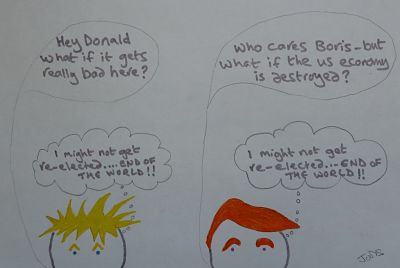
For many people, ‘what if’ thinking is already a familiar experience. When we’re doing ‘what if’ thinking, we’re looking ahead to what might go wrong, with one imagined event leading to a runaway chain of negative consequences. It causes anxiety and distress and can become compulsive. It’s also called catastrophic thinking, or catastrophising.
Current times are bringing huge challenges, with more health and money worries, social isolation, exhaustion, and anxiety about friends and family. Enforced social isolation can create the perfect environment for completely understandable worries to continue to magnify and transform into unmanageable anxieties.
The Alexander Technique is a powerful embodying method for dealing with anxiety and catastrophic thinking. It enables us to bring ourselves, as a mind-body whole, more fully into the present moment. We learn how to bring our attention to ‘what is’ now, to our physical and thinking selves, our breathing, our surroundings. In so doing, we can lessen the tendency to be always looking ahead to what may or may not happen, and we can use the Technique to interrupt such unwelcome thoughts when they do creep in. Engaging in ‘what is’ thinking doesn’t leave so much mental space for the ‘what if’ thinking to occur. Through our Alexander practice, our over-active state will gradually quieten, our breathing will become calmer and we will feel less tense, and more in control.
Like so many people, I’m no longer able to work as I usually do, and have temporarily switched from face-to-face Alexander lessons to online. Pre-Coronavirus crisis, such a move would have been unthinkable for me. However, I’ve been both surprised and gratified at how beneficial people have been finding these lessons delivered through video conferencing. Online Alexander teaching can never be a complete substitute for hands-on work. So much of the learning is experiential and relies on guidance from the teacher’s hands. But, as a temporary substitute in these extraordinary times, online teaching can work well – at least for those people who already have some existing Alexander experience.
We’re all having to find ways of adapting to these challenging times. The Alexander Technique is my best coping strategy.